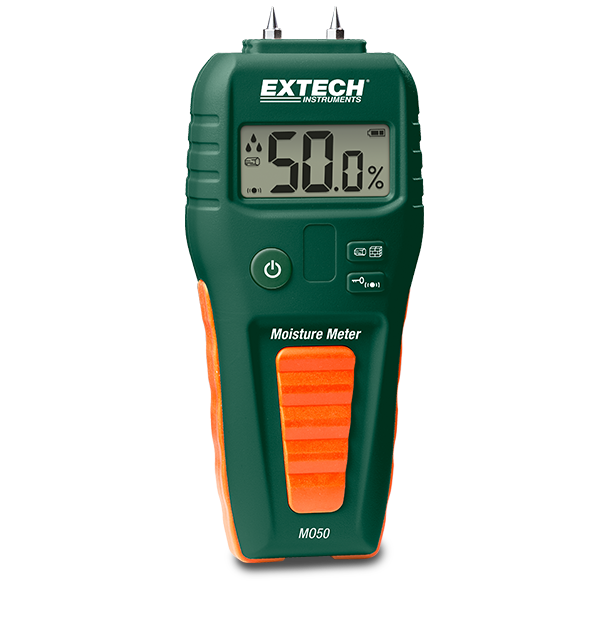Understanding the Different Types of Moisture Meters and Their Applications
Understanding the Different Types of Moisture Meters and Their Applications
Blog Article
The Ultimate Overview to Moisture Meters: A Comprehensive Introduction and Just How They Can Save You Money
In the realm of structure upkeep, building and construction, and numerous sectors, the importance of accurately gauging wetness levels can not be overemphasized. Moisture meters function as essential tools in identifying and checking moisture web content in products, aiding in preventing costly problems and making sure the quality of items. Recognizing the nuances of various kinds of wetness meters, their applications, and the possible cost-saving benefits they offer can be a game-changer for experts and businesses alike. Uncovering exactly how these tools can not only streamline processes yet also add to monetary savings is a trip worth starting.
Kinds of Moisture Meters
One typical kind is the pin-type dampness meter, which determines the electrical resistance in between two pins placed right into a product. Pinless moisture meters, on the other hand, usage electro-magnetic sensing unit plates to scan a bigger location without creating damages to the product's surface area.
Furthermore, there are also specialty wetness meters created for details materials like hay, grain, or dirt. These meters give accurate moisture analyses customized to the distinct homes of the product being checked. Infrared wetness meters determine the thermal properties of a material to determine its moisture content non-invasively, making them useful for applications where pin or pinless meters might not appropriate. Comprehending the different types of moisture meters readily available can aid markets pick the most proper device for their certain dampness measurement needs.

Advantages of Using Moisture Meters

Additionally, making use of wetness meters can result in increased energy performance. By determining locations with high moisture degrees, such as leaks or inadequate insulation, adjustments can be made to boost energy conservation and reduce energy costs. In agricultural setups, moisture meters play a vital role in enhancing plant returns by making it possible for farmers to monitor soil moisture levels and make notified irrigation decisions. In general, the benefits of utilizing wetness meters cover throughout different markets, giving cost-efficient solutions and promoting better high quality control methods.
Exactly How to Select the Right Moisture Meter
Choosing the ideal dampness meter involves taking into consideration essential elements such as product compatibility, measurement variety, and calibration accuracy. When picking a wetness meter, it's necessary to guarantee that the meter is suitable for the specific product you will certainly be testing. Various materials have varying electrical buildings that can impact moisture analyses, so have a peek at this website selecting a meter made for your material is critical for precise results. In addition, consider the dimension variety of the dampness meter. Ensure that the meter can discover moisture degrees within the array required for your applications. Calibration precision is one more crucial variable to remember (Moisture Meter). Decide for a wetness meter with reliable calibration to make certain exact and consistent readings. Some meters may call for periodic calibration changes, so understanding the calibration procedure is necessary. By very carefully evaluating these elements, you can pick a dampness meter that meets your requirements and gives accurate moisture measurements for your tasks.
Proper Methods for Moisture Meter Use
To ensure exact wetness readings and take full advantage of the effectiveness of a dampness meter, employing proper strategies is necessary. When utilizing a pin-type dampness meter, place the pins or probes into the product being examined up until they make full get in touch with. By following these correct techniques, customers can count on their wetness meter to provide reliable moisture degrees, aiding in stopping expensive damage or guaranteeing high quality in different applications.

Expense Cost Savings Through Moisture Meter Applications
Just how can the tactical usage of wetness meters lead to substantial price savings across various markets? In the farming market, dampness meters help in navigate here determining the optimal time for gathering crops, stopping excess or over-drying dampness that can affect the last item's top quality.

Furthermore, in the food processing sector, dampness meters are important for keeping track of product high quality and ensuring compliance with safety policies. By accurately measuring moisture content in food, manufacturers can prevent putridity, preserve freshness, and reduce waste, resulting in substantial price financial savings. Generally, the calculated application of wetness meters is an important investment that can lead to significant price reductions and improved efficiency throughout different markets.
Conclusion
In conclusion, dampness meters are useful tools for gauging and discovering moisture degrees in different materials. By making use of the ideal moisture meter and adhering to appropriate techniques, customers can successfully avoid costly damages triggered by excess moisture. Purchasing a quality dampness meter can bring about considerable cost financial savings over time by recognizing prospective concerns at an early stage and enabling prompt removal. Inevitably, moisture meters are important instruments for preserving the integrity and durability of frameworks and products.
Moisture meters offer as important tools in spotting and keeping track of moisture material in materials, aiding in avoiding pricey damages and making sure the high quality of items. Infrared wetness meters gauge the thermal properties of a material to identify its moisture material non-invasively, making them beneficial for applications where pin or pinless meters may not be suitable.Wetness meters read this offer important advantages in accurately keeping an eye on and assessing moisture levels in varied products and atmospheres. In farming settings, wetness meters play an essential duty in maximizing crop yields by allowing farmers to keep track of dirt wetness degrees and make educated watering decisions.In conclusion, moisture meters are valuable tools for finding and determining moisture levels in different materials.
Report this page